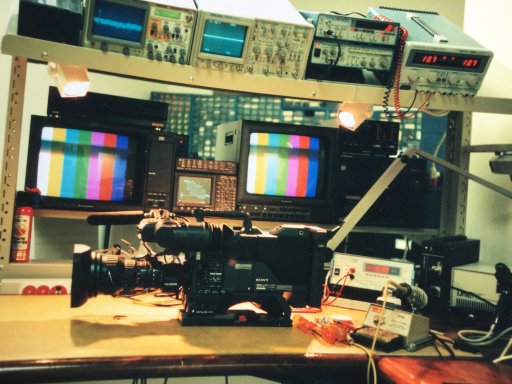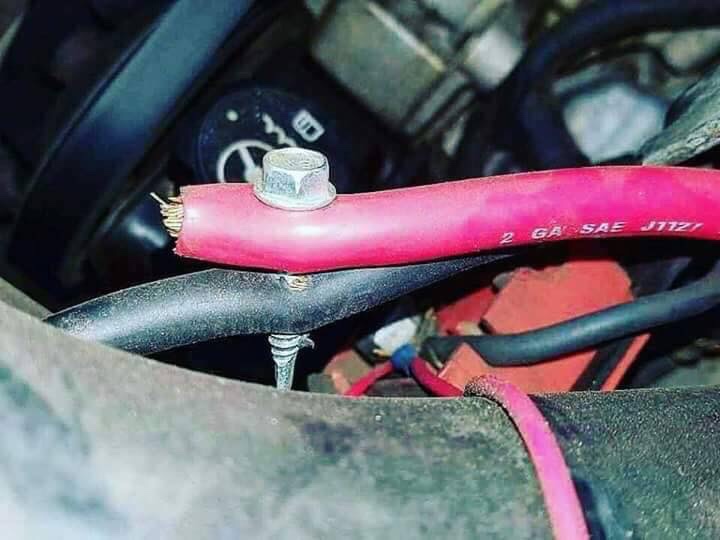
Influencer II
So I openly admit that I'm not a mechanic and will shy away from many jobs on my Cruiser beyond changing a wheel... actually I get a bit more involved than that but replacing a wheel bearing is probably my worst nightmare. When it comes to electrics though I don't shy away from getting stuck in whether it's helping out a mate or on my own vehicle. I guess it helps that I have a bit of a background in electrics/electronics and spent a few weeks working for an auto electricians but still, I'm not by any means qualified professionally.
It occurs to me that I might not be alone and many will be more might be likely to get involved in vehicle electrics than mechanics? At the same time I've come to realise that you can just as quickly leave a vehicle stranded through an electrical fault as a mechanic one (and I'm not not just talking about modern vehicles with multiple interconnected computers that decide they've had enough and put you in limp home mode) in the middle of no where.
There have been loads of joke posts on Facebook recently showing household circuit breakers as fuses in cars and battery cables joined using self taping screws but I wonder how many DIY installs might not be to far from this? Certainly I've seen loads of pictures of wiring that looks like spaghetti and no additional sleeving on the positive/live wires to give additional protection against wearing through the insulation and shorting out.
Methods have also changed over the years too. Back when I started everything was 'crimp and solder' giving you a bonded and mechanical connection. Now most would be pre-insulated crimps and I've taken to sealing those by adding the adhesive heatshrink over the top.
Andrew St Piere White produced a video on electrics and overland vehicles a while back and it got me thinking more about it.
Now when I'm installing additional electrical accessories I'm more mindful of the existing circuits in the vehicle I 'cut' into. That said, I still make mistakes like when I upgraded the alternator and blew the main fuse on the way to work a few days later. Fortunately I was only a mile from home and the engine was still running even if nothing else electrical worked. The result of that was a rather expensive factory fuse replacement and then upgrading the wiring. Even that isn't straight forward, you have to calculate the maximum current and then then length required to work out the diameter of the cable (or wire gauge) needed. Maybe I should have gone to a professional!
Sorry, bit more of an article than the simiple question I intended but I'm interested to know who does there own electrics (fridges, lights, dual batteries, winches, usb charinging sockets, etc) and how they go about it, what have they learnt along the way or do you leave that to the pro's?
It occurs to me that I might not be alone and many will be more might be likely to get involved in vehicle electrics than mechanics? At the same time I've come to realise that you can just as quickly leave a vehicle stranded through an electrical fault as a mechanic one (and I'm not not just talking about modern vehicles with multiple interconnected computers that decide they've had enough and put you in limp home mode) in the middle of no where.
There have been loads of joke posts on Facebook recently showing household circuit breakers as fuses in cars and battery cables joined using self taping screws but I wonder how many DIY installs might not be to far from this? Certainly I've seen loads of pictures of wiring that looks like spaghetti and no additional sleeving on the positive/live wires to give additional protection against wearing through the insulation and shorting out.
Methods have also changed over the years too. Back when I started everything was 'crimp and solder' giving you a bonded and mechanical connection. Now most would be pre-insulated crimps and I've taken to sealing those by adding the adhesive heatshrink over the top.
Andrew St Piere White produced a video on electrics and overland vehicles a while back and it got me thinking more about it.
Now when I'm installing additional electrical accessories I'm more mindful of the existing circuits in the vehicle I 'cut' into. That said, I still make mistakes like when I upgraded the alternator and blew the main fuse on the way to work a few days later. Fortunately I was only a mile from home and the engine was still running even if nothing else electrical worked. The result of that was a rather expensive factory fuse replacement and then upgrading the wiring. Even that isn't straight forward, you have to calculate the maximum current and then then length required to work out the diameter of the cable (or wire gauge) needed. Maybe I should have gone to a professional!
Sorry, bit more of an article than the simiple question I intended but I'm interested to know who does there own electrics (fridges, lights, dual batteries, winches, usb charinging sockets, etc) and how they go about it, what have they learnt along the way or do you leave that to the pro's?











